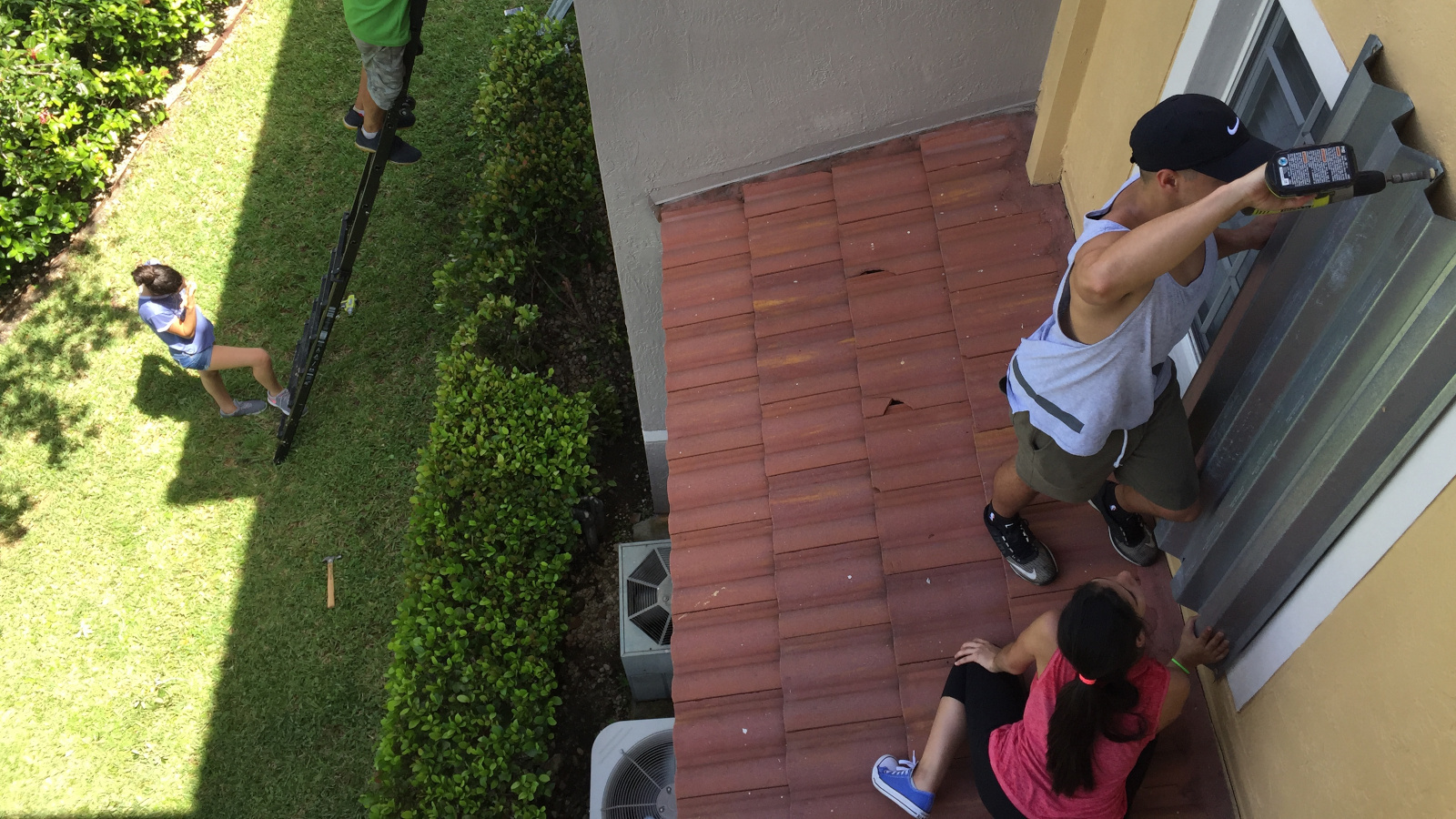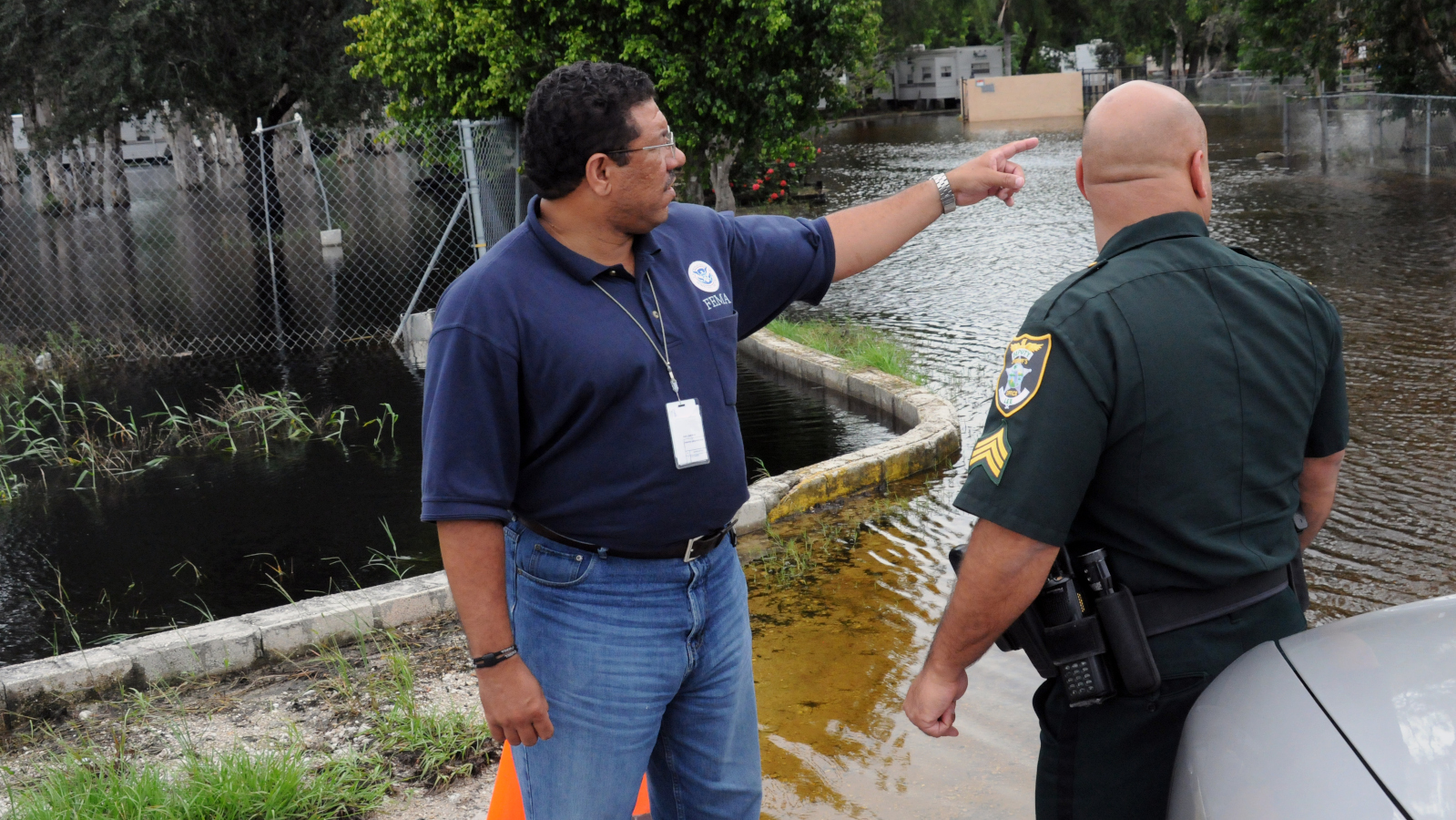
Installing hurricane shutters on a home can reduce the insurance premium cost. | Cyclonebiskit/Wikimedia Commons
Florida homeowners should shop around for the most affordable insurance policy, but knowing details about their home’s construction, condition of systems and status of weather mitigation efforts can make a difference on what quotes they receive.
The first thing insurance agents do when preparing a quote is to look at the year of construction as it will impact pricing and set the next steps.
“Generally speaking, if the property is built 2002 or newer, you're going to get a lot of discounts automatically because the house is built up to certain building codes, regarding the general characteristics of the property and specifically characteristics regarding the roof,” Garrett Mitchell, director of sales and marketing for Insurance Express, told Insurance Rate Reporter.
After purchasing a house, you can’t do anything about its age. But Mitchell said you should work with agents who have good market access to many companies to get competitive rates.
An insurance agent working with an older property should advise you to get a wind mitigation inspection and probably a four-point inspection also, he said.
Proper wind mitigation offers discounts on your insurance policy based on what characteristics the property contains that help it withstand a windstorm or hurricane effect, Mitchell said.
For Florida homeowners that can impact the premium significantly.
The four-point inspection checks the four major systems in the home: the roof, the electrical, the plumbing and the HVAC. Mitchell said it outlines the systems’ conditions and details about them, which shows that you qualify for homeowners’ policies with available companies.
“Another tip would be to review the wind mitigation inspection and to review the four-point inspection for areas of improvement,” Mitchell said.
Many times, a homeowner can make improvements to the property that have a favorable return on investment. Walk through the inspection with an insurance agent to find those favorable investments.
Certain requirements are set for hurricane clips or single wraps, both wind mitigation measures. Mitchell said the inspection might show your home meets 90% of the requirements. Sometimes it’s as simple as missing a single nail in the metal hurricane clip in your roof. With adequate roof access, it wouldn’t be expensive to have a retrofitting company come in and add that nail in each clip.
“You're going to now save hundreds, sometimes thousands on the insurance premium as a result of making that improvement,” he said
Before making the investments suggested by the inspection reports, ask your agent for a “what if” quote to determine the potential savings realized by spending that money.
Those suggestions might include installing hurricane shutters or hurricane impact windows, hurricane clips in the roof or even replacing an older roof.
Independent agents have the advantage of being able to look at more markets than a captive agency working for a single carrier, Greg Hile, owner of Quoterush.com told Insurance Rate Reporter.
Insurance Express contracts with Quoterush.com for the technology to get quotes from multiple companies.
“Since carriers like to spread the risk around, they may have an appetite for one area and not another,” Hile said. “And what agents will do is if they don't have the ability to quote with a bunch of carriers, they'll tend to pick the easiest way out.”
Mitchell advised homeowners to ask how many companies they represent to make sure you get the widest market choice.
Insuring for the right amount is another tip. Hile said if your coverage estimate for your house hasn’t changed in 15 or 20 years, it will cost more to rebuild your home than its insured value. Losing your house would be a bigger disaster if you saved $100 only to fall $100,000 short of rebuilding costs, he said.
Understand your deductibles, Mitchell said, because Florida is one of the states that almost always has separate hurricane and windstorm deductibles. If you don’t understand the deductibles, they will be much higher than anticipated. Most of the time these deductibles are a percentage-based deductible of your dwelling’s limit. Typically, it is 2% or 5% of that amount.
“Sometimes they find out at the worst time, if they have a 5% hurricane deductible, that that deductible is really over $20,000,” Mitchell said. “And now they have $18,000 worth of hurricane damage that they have no coverage for it because it didn't meet the deductible threshold.”
That’s $18,000 of out-of-pocket expenses in that example.
Another tip is to understand that flood insurance generally is separate coverage with either a separate policy or it has to be specifically endorsed onto the home policy. It’s never covered automatically in the policy.
Something that became apparent after the last few years of hurricanes is that most customers were under-insured.
Another way to get a more affordable policy include asking what types of packages insurance carriers offer. Bundling insurance policies can potentially create savings.
Checking on a carrier’s rating can help, as a higher rated carrier should be more financially secure. That could translate into fewer and smaller rate hikes.




 Alerts Sign-up
Alerts Sign-up